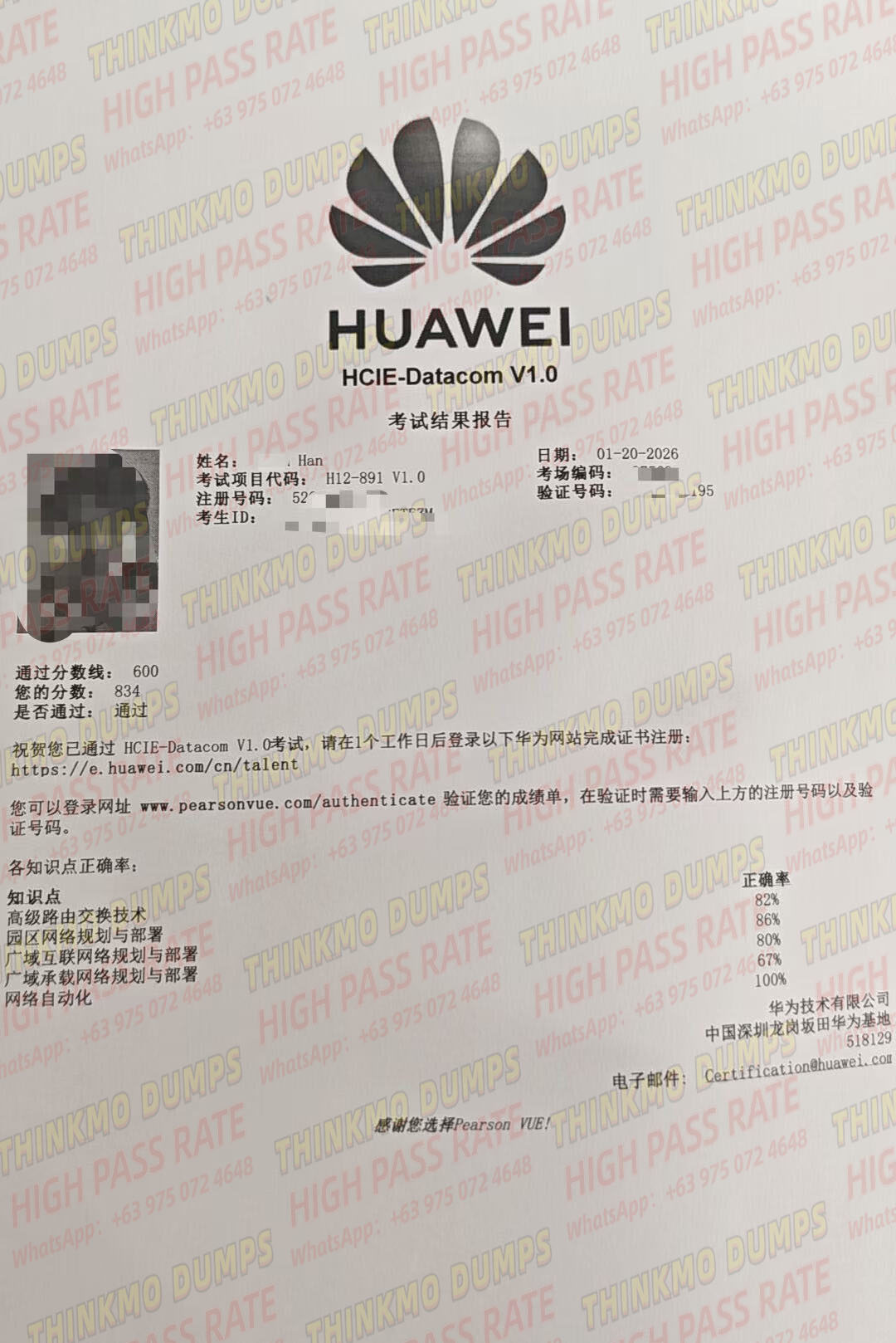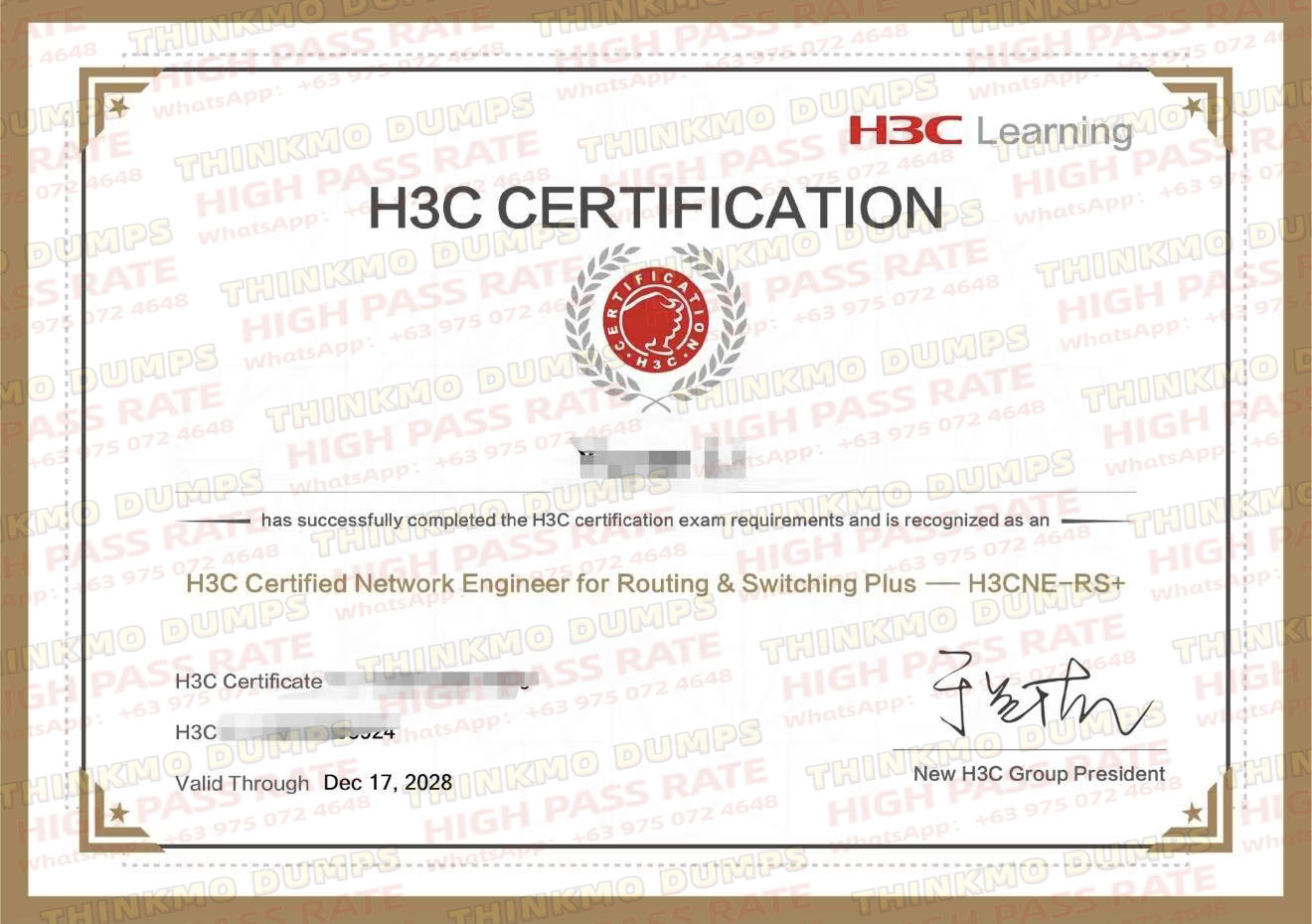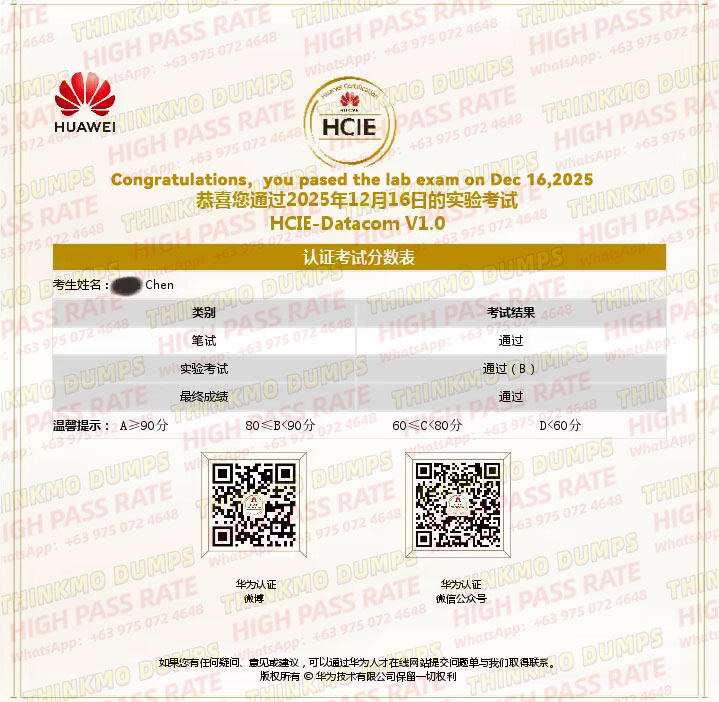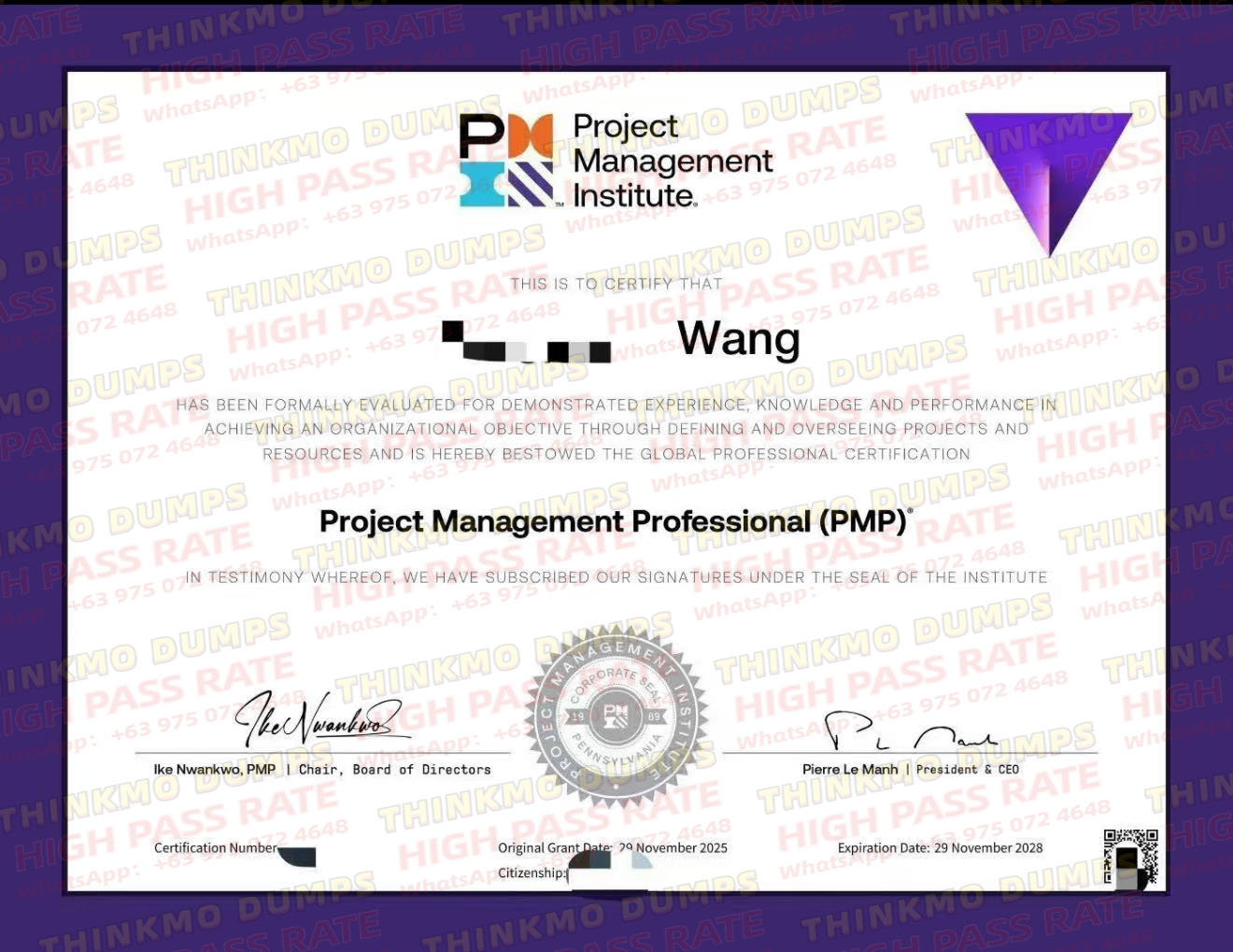How Valuable Is the Cisco CCNA Certification?
Update time:2025-10-15
If you’re planning to enter the networking field, you’ve probably heard of Cisco’s CCNA certification.But a common question arises — “Is CCNA still worth it today?”Will it actually help you land a job?With so many certifications on the market, it’s natural to wonder whether CCNA is still valuable or just another piece of paper.

This article breaks it all down clearly — what CCNA is, what’s covered in the exam, how much it’s worth, and how to prepare effectively using updated dumps and practice materials.
1.What Is CCNA?The Foundation of Cisco’s Certification System
Cisco’s certification hierarchy has three levels: CCNA (Associate), CCNP (Professional), and CCIE (Expert).
CCNA sits at the entry level, designed to verify that you understand fundamental networking concepts and can perform basic operations on Cisco devices.
Despite the rise of other vendors, Cisco still maintains strong market share in enterprise routing, switching, and data centers—especially in multinational companies, financial institutions, and traditional enterprises.That continued usage is what keeps CCNA valuable.

2.What Does the CCNA Exam Cover?How Hard Is It?
Core Exam Content
The CCNA exam focuses on network fundamentals and device operations.It includes three essential modules for any beginner network engineer:
Network Theory: Routing protocols (OSPF, EIGRP), VLAN segmentation and configuration, TCP/IP stack, IP addressing, and subnetting.
Cisco Device Operations: Router/switch setup, static routes, interface configuration, and basic troubleshooting (e.g., interface or VLAN connectivity issues).
Emerging Technologies: Basic SD-WAN and wireless networking (10–15% of total content).
Exam Format and Difficulty
Format: 90-minute multiple-choice exam (single/multiple choice, true/false, drag-and-drop).Passing score: 825/1000.Available online or at authorized testing centers.
Difficulty: Moderate.With basic computer knowledge, you can pass in 1–2 months.Absolute beginners should first spend 2 weeks learning basic network concepts.

3.Is CCNA Still Valuable?Yes — But It Has Limits
1) Benefits for Beginners
Resume Booster: Entry-level networking jobs often list “CCNA preferred.”Having it looks much stronger than “familiar with networking.”
Structured Knowledge: CCNA gives you a systematic foundation in how data flows and how devices are configured — a solid base for CCNP, Cloud, or Security tracks.
Salary Edge: In major cities, entry-level network engineers with CCNA earn about 10–15% more (roughly 8k–12k RMB/month).
2) Where It’s Recognized
Foreign or multinational firms: Cisco gear remains standard at companies like IBM or Microsoft branches.
Traditional industries: Financial institutions and telecom operators still rely on Cisco infrastructure.
Cisco partners: Integration and hardware partners often require staff with active CCNA/CCNP to maintain official partner status.
3) Limitations
Domestic ecosystem gap: In China, Huawei’s HCIA is more common in government and local enterprises.
Lower demand in SMBs: Smaller firms often use H3C or Ruijie gear.
Experience still matters: CCNA proves knowledge, but real-world troubleshooting experience is essential for higher positions.
4.Smart Study Plan: Pass in 1–2 Months
Step 1: Build the Foundation (2–3 Weeks)
Use Cisco’s official CCNA Study Guide and free learning videos (many available on Bilibili).Focus on understanding routing logic and VLAN configuration rather than memorizing.
Step 2: Practice with Simulators (2–3 Weeks)
Tool: Cisco’s free simulator Packet Tracer — no hardware needed.
Essential practice areas: VLAN setup, OSPF configuration, static routing, and troubleshooting (create intentional errors and fix them).
Step 3: Use Dumps to Reinforce Knowledge (1–2 Weeks)
Focus on weak areas like subnetting, routing logic, and layer-2 operations.
Step 4: Exam Logistics
Registration: Pearson VUE official site.
Fee: 300 USD (~2100–2300 RMB).Payment via credit card or Alipay.
Validity: 3 years.You can renew by retaking CCNA or upgrading to CCNP.
5.Should You Take the CCNA? Depends on Your Goal
CCNA is worth it if any of these apply to you:
You want to join a foreign enterprise, Cisco partner, or multinational firm as a network engineer.
You’re a graduate or career switcher without much experience, and need a certification to prove your foundation.
You plan to continue studying for CCNP or CCIE, or transition into cloud or security.
But if your goal is to work in state-owned enterprises, Huawei partner ecosystems, or small local companies, the Huawei HCIA certification may be a better ROI.
Bottom Line
CCNA is the “entry ticket” to networking — it proves you understand the basics and can work with real devices.It won’t guarantee a high salary, but it can open the door to your first opportunity.
The smartest path? Combine official study materials with up-to-date CCNA dumps to master the core topics, improve accuracy, and pass efficiently on your first attempt.
I'm your man who have the 100% valid dumps , buy it now for 50% off to clear your exam!
Click it ↓↓


This article breaks it all down clearly — what CCNA is, what’s covered in the exam, how much it’s worth, and how to prepare effectively using updated dumps and practice materials.
1.What Is CCNA?The Foundation of Cisco’s Certification System
Cisco’s certification hierarchy has three levels: CCNA (Associate), CCNP (Professional), and CCIE (Expert).
CCNA sits at the entry level, designed to verify that you understand fundamental networking concepts and can perform basic operations on Cisco devices.
Despite the rise of other vendors, Cisco still maintains strong market share in enterprise routing, switching, and data centers—especially in multinational companies, financial institutions, and traditional enterprises.That continued usage is what keeps CCNA valuable.
2.What Does the CCNA Exam Cover?How Hard Is It?
Core Exam Content
The CCNA exam focuses on network fundamentals and device operations.It includes three essential modules for any beginner network engineer:
Network Theory: Routing protocols (OSPF, EIGRP), VLAN segmentation and configuration, TCP/IP stack, IP addressing, and subnetting.
Cisco Device Operations: Router/switch setup, static routes, interface configuration, and basic troubleshooting (e.g., interface or VLAN connectivity issues).
Emerging Technologies: Basic SD-WAN and wireless networking (10–15% of total content).
Exam Format and Difficulty
Format: 90-minute multiple-choice exam (single/multiple choice, true/false, drag-and-drop).Passing score: 825/1000.Available online or at authorized testing centers.
Difficulty: Moderate.With basic computer knowledge, you can pass in 1–2 months.Absolute beginners should first spend 2 weeks learning basic network concepts.
3.Is CCNA Still Valuable?Yes — But It Has Limits
1) Benefits for Beginners
Resume Booster: Entry-level networking jobs often list “CCNA preferred.”Having it looks much stronger than “familiar with networking.”
Structured Knowledge: CCNA gives you a systematic foundation in how data flows and how devices are configured — a solid base for CCNP, Cloud, or Security tracks.
Salary Edge: In major cities, entry-level network engineers with CCNA earn about 10–15% more (roughly 8k–12k RMB/month).
2) Where It’s Recognized
Foreign or multinational firms: Cisco gear remains standard at companies like IBM or Microsoft branches.
Traditional industries: Financial institutions and telecom operators still rely on Cisco infrastructure.
Cisco partners: Integration and hardware partners often require staff with active CCNA/CCNP to maintain official partner status.
3) Limitations
Domestic ecosystem gap: In China, Huawei’s HCIA is more common in government and local enterprises.
Lower demand in SMBs: Smaller firms often use H3C or Ruijie gear.
Experience still matters: CCNA proves knowledge, but real-world troubleshooting experience is essential for higher positions.
4.Smart Study Plan: Pass in 1–2 Months
Step 1: Build the Foundation (2–3 Weeks)
Use Cisco’s official CCNA Study Guide and free learning videos (many available on Bilibili).Focus on understanding routing logic and VLAN configuration rather than memorizing.
Step 2: Practice with Simulators (2–3 Weeks)
Tool: Cisco’s free simulator Packet Tracer — no hardware needed.
Essential practice areas: VLAN setup, OSPF configuration, static routing, and troubleshooting (create intentional errors and fix them).
Step 3: Use Dumps to Reinforce Knowledge (1–2 Weeks)
Use the latest CCNA dumps to simulate real exam questions.Avoid outdated versions.
Method: Don’t just memorize answers — read official documentation to understand why each answer is correct.Focus on weak areas like subnetting, routing logic, and layer-2 operations.
Step 4: Exam Logistics
Registration: Pearson VUE official site.
Fee: 300 USD (~2100–2300 RMB).Payment via credit card or Alipay.
Validity: 3 years.You can renew by retaking CCNA or upgrading to CCNP.
5.Should You Take the CCNA? Depends on Your Goal
CCNA is worth it if any of these apply to you:
You want to join a foreign enterprise, Cisco partner, or multinational firm as a network engineer.
You’re a graduate or career switcher without much experience, and need a certification to prove your foundation.
You plan to continue studying for CCNP or CCIE, or transition into cloud or security.
But if your goal is to work in state-owned enterprises, Huawei partner ecosystems, or small local companies, the Huawei HCIA certification may be a better ROI.
Bottom Line
CCNA is the “entry ticket” to networking — it proves you understand the basics and can work with real devices.It won’t guarantee a high salary, but it can open the door to your first opportunity.
The smartest path? Combine official study materials with up-to-date CCNA dumps to master the core topics, improve accuracy, and pass efficiently on your first attempt.
I'm your man who have the 100% valid dumps , buy it now for 50% off to clear your exam!
Click it ↓↓

Hot article
-
 1
1 1. ThinkMo Precise Question Bank: Ace HCIE Written
上传:2026-01-23
-
 2
2 Triple H3CNE/H3CSE Passes | ThinkMo Christmas Succe
上传:2025-12-25
-
 3
3 Success Streak: ThinkMo’s Dec HCIE-Datacom Win
上传:2025-12-24
-
 4
4 ThinkMo Guide: Cisco & Huawei Certification Com
上传:2025-12-22
-
 5
5 Pass CCIE/CKA Exams with ThinkMo’s Top Question B
上传:2025-12-19








